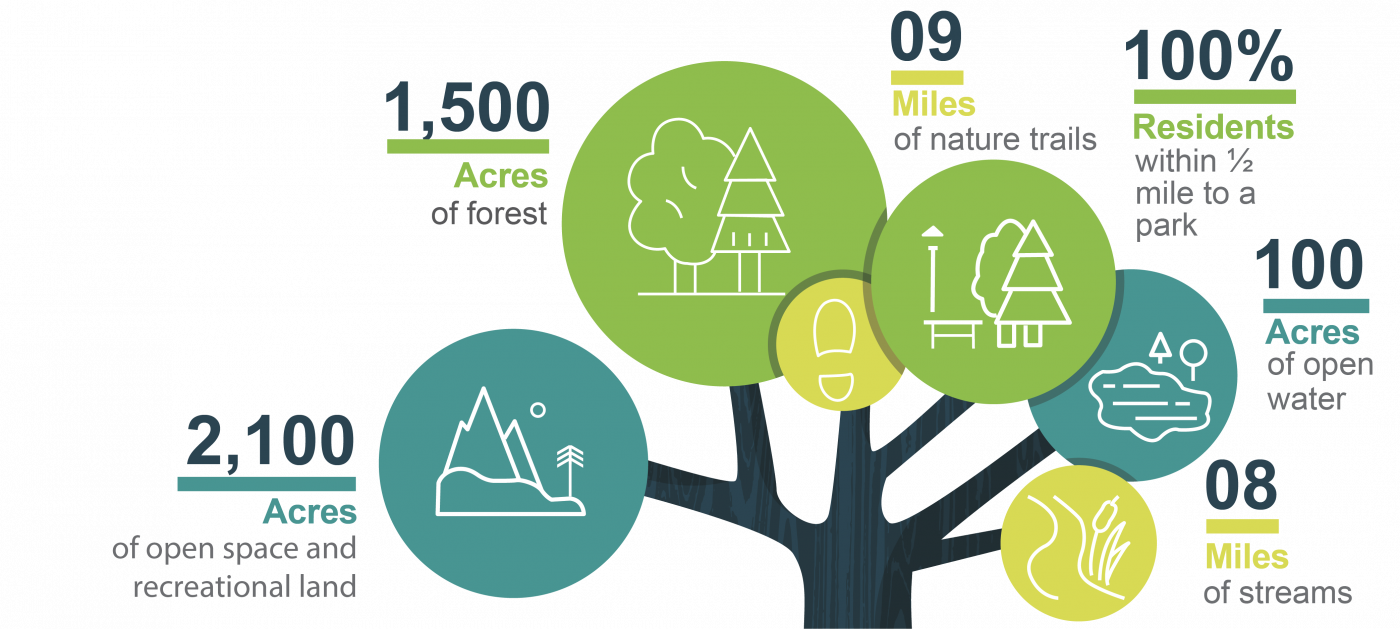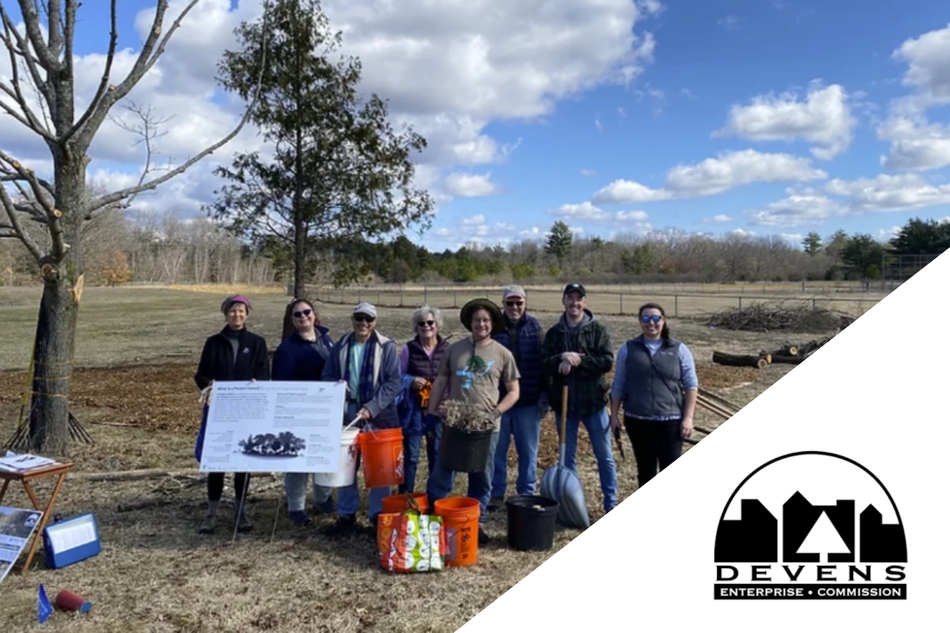Devens is fortunate to have bountiful natural resources, including 1,500 acres of beautiful forests. In today’s blog, we’ll dive into the benefits of our trees and how Devens is supporting them.

Trees provide essential ecosystem services that support biodiversity and ecological balance. They serve as habitats for numerous species of animals, birds, and insects, playing a crucial role in preserving biodiversity. Additionally, tree roots stabilize soil, preventing erosion and protecting water quality by filtering pollutants from runoff. With flooding projected to become more frequent in the next decade, this erosion-stabilizing service trees provide is more important for our resilience than ever.
In more developed areas, trees offer shade and cooling effects, reducing the urban heat island effect and providing relief from high temperatures during summer months. This not only enhances the comfort of residents and builds community resilience to extreme heat, but also lowers energy consumption for cooling buildings, thereby reducing greenhouse gas emissions. Devens low-impact development techniques and landscaping requirements for development projects provide opportunities for integrating the natural and built environment. Devens Green Infrastructure Guidelines give developers the guidance they need to make this happen.

Did you also know that trees contribute to climate change mitigation by acting as carbon sinks? They absorb carbon dioxide from the atmosphere and store it in their biomass and soil, helping to offset the impacts of human activities such as burning fossil fuels and deforestation. Devens' trees currently store the equivalent of 4.2 years worth of Devens' annual greenhouse gas emissions. Every year Devens’ trees sequester an additional 3,802 MTCO2e of carbon—4% of Devens annual emissions.
Beyond their environmental benefits, trees also have significant socio-economic impacts. They enhance property values, attract tourism, and provide opportunities for recreation and relaxation, thereby contributing to the overall well-being and quality of life in communities.
Supporting Trees Boosts Climate Resilience in Devens
The Devens Enterprise Commission, working in collaboration with the Town of Ayer, recently completed the Ayer/Devens Pocket Forest pilot project and is now preparing for two new pocket forests in Devens at Ayer Shirley Regional Middle School and Verbeck Field. These mini forests will better connect people with nature and reduce impacts of climate change by reducing urban heat-island impacts, improving air quality, reducing flooding through increased rainfall capture and infiltration, and providing accessible greenspace. These pocket forests will also serve as outdoor classrooms and labs for local educators to teach students about nature and science.


Pocket Forests: By The Numbers
3 pocket forests (1 completed, 2 forthcoming)
500 trees planted so far
50 new species installed

We recently had the pleasure of celebrating the 1st birthday of the Ayer/Devens pocket forest! The Ayer-Devens Pocket Forest Project Pilot Site 1st Birthday Festival featured food, tours of the site, musical performances, and readings.
Take action for our trees and health:
Previous Post
Adaptive Reuse in Devens
Next Post
Extreme Heat Resilience



